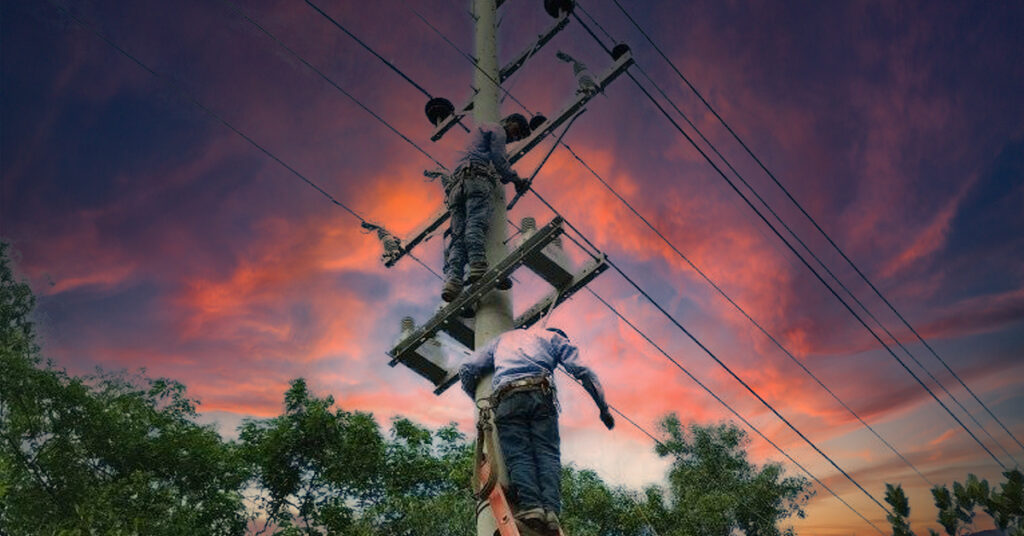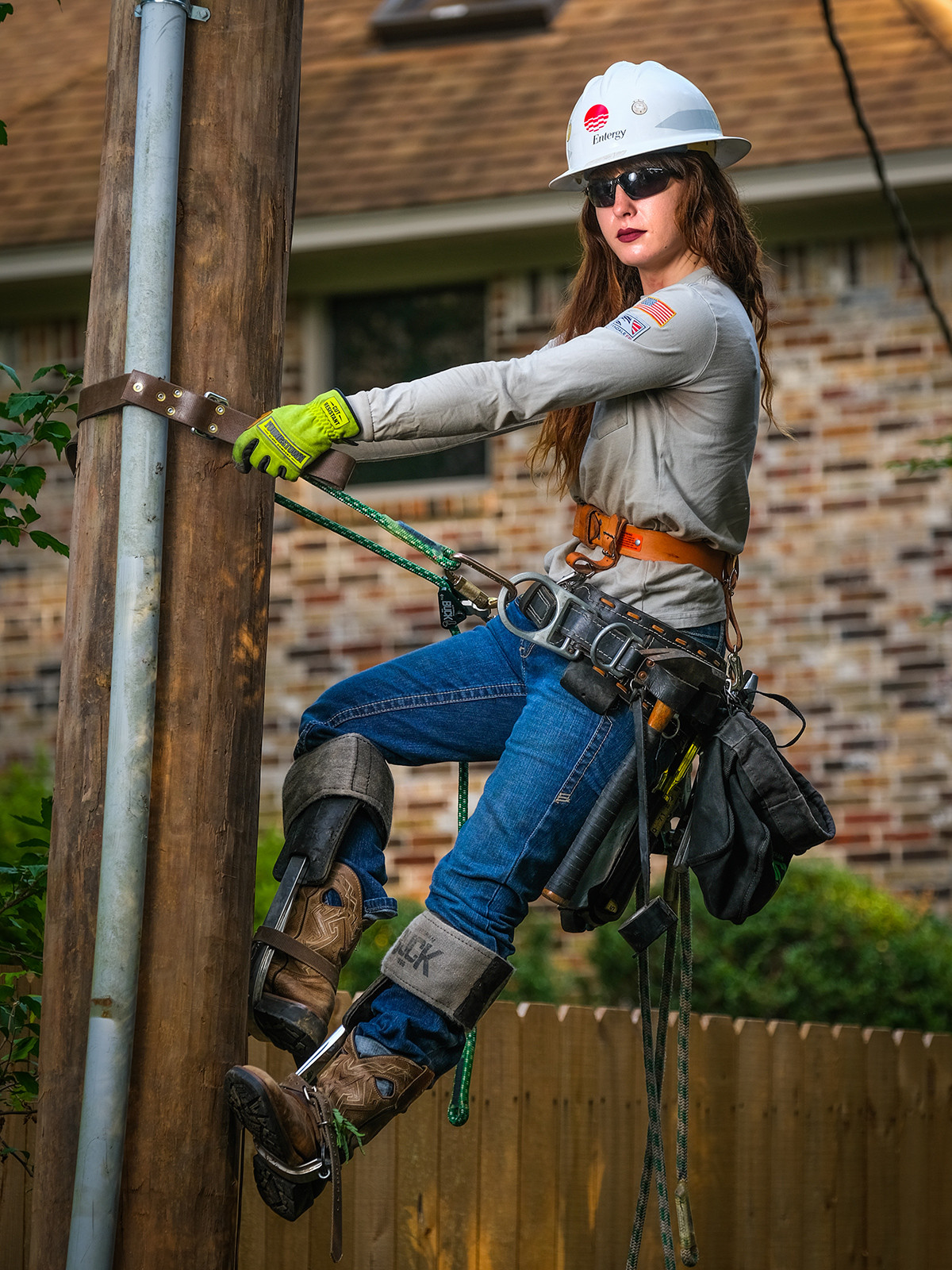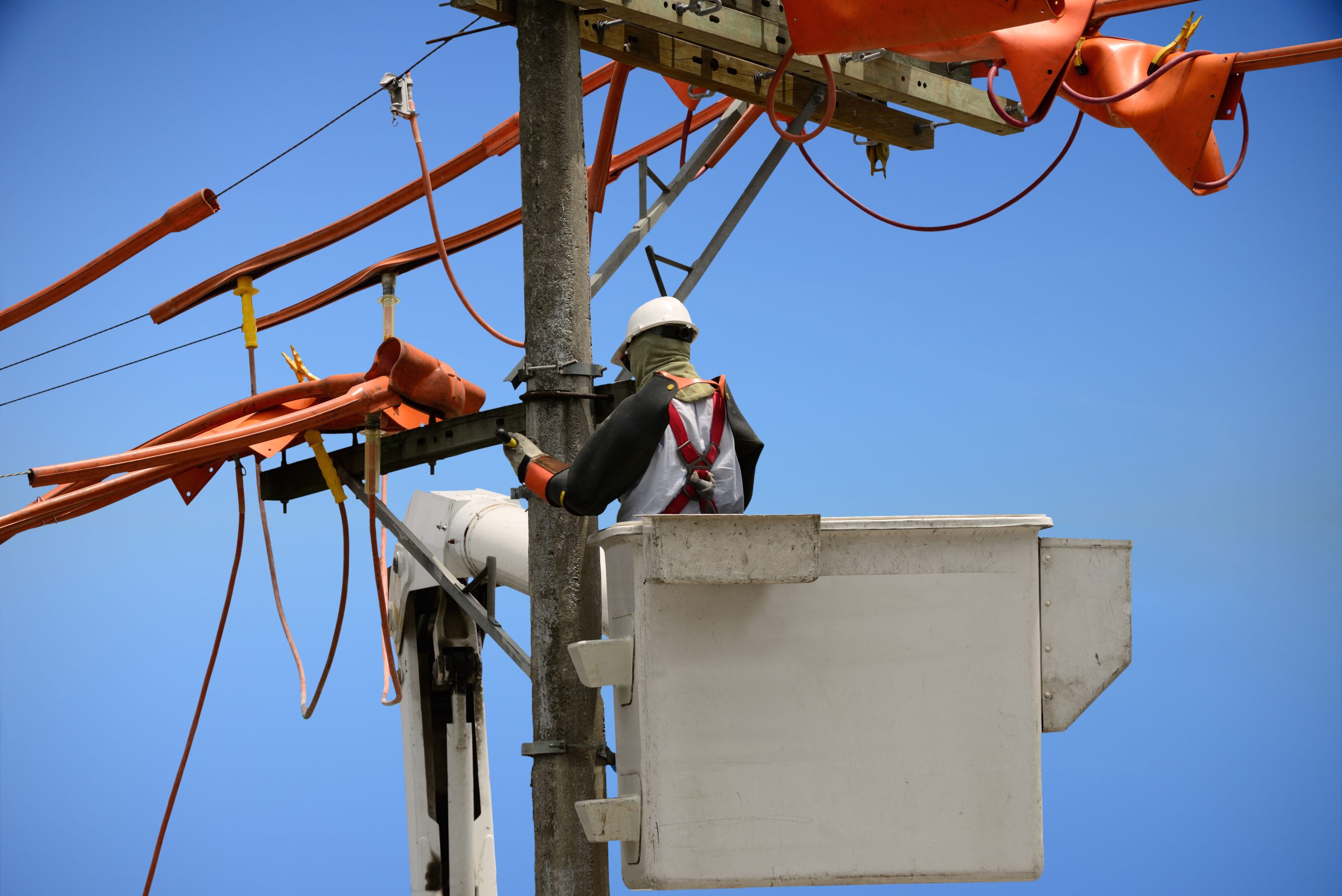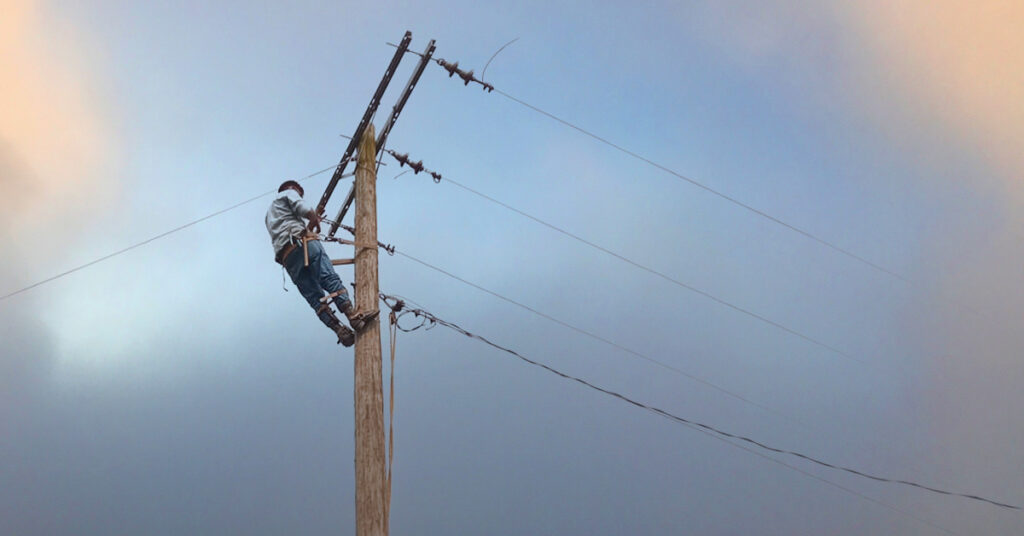A lineman is a skilled worker who installs and maintains power lines. They ensure electricity flows to homes and businesses without interruptions.
Imagine a world without electricity. No lights, no computers, no phones. Linemen make sure this doesn’t happen. They work on high-voltage power lines, often in challenging conditions. They climb poles, fix transformers, and repair lines after storms. Their job is critical for our daily lives.
Without linemen, our modern world would come to a standstill. They are the unsung heroes of the electrical grid. In this blog, we will dive deeper into the role of a lineman. We’ll explore their duties, training, and the risks they face. Stay with us to learn more about this vital profession.
Introduction To Linemen
Linemen are vital workers in the field of electrical systems. They install, maintain, and repair power lines that bring electricity to homes and businesses. Linemen work in challenging conditions, often facing harsh weather and high altitudes. Their role is crucial for keeping the power grid functioning and ensuring a stable electricity supply.
History And Evolution
The profession of linemen has a rich history. It began in the late 19th century with the advent of telegraph and telephone lines. Early linemen faced great risks with limited safety equipment. Over time, the profession evolved with advancements in technology and safety practices. Today, linemen use sophisticated tools and follow strict safety protocols. This evolution has made the job safer and more efficient.
Importance In Modern Society
Linemen play a key role in modern society. They ensure the continuous supply of electricity, which is essential for daily life. Without linemen, power outages would be more frequent and longer lasting. Their work supports not just homes, but also hospitals, schools, and industries. Linemen help maintain the backbone of our electrical infrastructure.

Key Responsibilities
Understanding the key responsibilities of a lineman is important. Linemen are essential workers who install and maintain power lines. Their role ensures that electricity flows smoothly to homes and businesses.
Installation Of Power Lines
Linemen are skilled in installing power lines. They set up poles and towers to support the lines. They also string the wires between these structures. Linemen must follow safety guidelines. This ensures that the installation is safe and reliable.
Maintenance And Repair
Maintenance and repair are crucial tasks for linemen. They check power lines regularly. This helps to spot any potential problems early. Linemen also fix any issues that arise. This could be due to weather or wear and tear.
Repairing power lines can be a tough job. Linemen work in all weather conditions. They must act quickly to restore power. This ensures minimal disruption to the community.
Skills And Qualifications
Being a lineman is a demanding job that requires a specific set of skills and qualifications. These professionals play a vital role in maintaining and repairing electrical power systems. To excel in this field, linemen must possess both technical skills and physical fitness. Let’s explore these in detail.
Technical Skills
Linemen must have a solid understanding of electrical systems. They need to know how to install, maintain, and repair electrical lines. This includes both overhead and underground systems. They must be proficient in using various tools and equipment. These can range from basic hand tools to complex machinery.
Knowledge of safety protocols is crucial. Linemen work with high-voltage electricity, which can be dangerous. They must follow strict safety guidelines to prevent accidents. Understanding electrical diagrams and blueprints is also essential. This helps in troubleshooting issues quickly and efficiently.
Many linemen complete an apprenticeship program. This provides hands-on training and practical experience. Certification and licensing are often required, depending on the region. Continuous education is also important. Technology and safety standards evolve, so linemen must stay updated.
Physical Fitness
Physical fitness is a key requirement for linemen. The job involves climbing poles and working at heights. This requires strength and stamina. Linemen also need good hand-eye coordination. Precision is crucial when handling electrical components.
Working outdoors in various weather conditions is part of the job. Linemen must be prepared for extreme heat, cold, and rain. They often work long hours, especially during emergencies. Physical endurance is necessary to handle these demands.
Regular exercise and a healthy lifestyle can help linemen stay fit. This not only improves their performance but also reduces the risk of injuries.

Credit: www.arkansasbusiness.com
Training And Certification
Becoming a lineman requires specific training and certification. Linemen work with electrical power systems and need to follow safety protocols. Proper training ensures they can handle the job safely and efficiently.
Educational Requirements
Most linemen start with a high school diploma or GED. They need to understand basic math and physics. Some attend community colleges or technical schools. These institutions offer courses related to electrical systems and safety procedures.
In some cases, candidates may need to pass an aptitude test. This test measures their understanding of electrical concepts and problem-solving skills.
On-the-job Training
After meeting the educational requirements, prospective linemen enter apprenticeship programs. These programs provide hands-on experience under the guidance of experienced linemen. Apprenticeships typically last between three to four years.
During the apprenticeship, trainees learn to:
- Climb poles and towers
- Install and repair electrical lines
- Follow safety protocols
- Use specialized tools and equipment
Apprentices also attend classroom sessions. These sessions cover electrical theory, safety standards, and first aid.
Upon completing the apprenticeship, linemen must pass a certification exam. This exam tests their knowledge and skills. Passing it is necessary to work independently.
Safety Measures
Being a lineman is a demanding job. It requires working with high-voltage power lines. Safety is the top priority. Linemen follow strict safety measures to prevent accidents and injuries. These measures include wearing protective gear and adhering to safety protocols.
Protective Gear
Linemen wear specialized gear to stay safe. This includes insulated gloves. These gloves protect against electric shocks. Hard hats are also essential. They guard against falling objects. Safety glasses shield the eyes from debris. Flame-resistant clothing is worn to reduce burn risks. Safety boots with rubber soles provide traction and insulation. These items are crucial for a lineman’s safety.
Safety Protocols
Following safety protocols is vital for linemen. They always follow lockout/tagout procedures. This ensures the power is off before work begins. Linemen also use fall protection gear. Harnesses and lanyards prevent falls from high places. Regular safety meetings are held. Linemen discuss potential hazards and review safety practices. They also use insulated tools. These tools reduce the risk of electric shocks. Regular equipment checks are important. Faulty gear is replaced immediately. These protocols keep linemen safe on the job.
Tools And Equipment
A lineman’s job is complex and demanding. They work on electrical power systems, ensuring our power supply remains uninterrupted. To perform these tasks safely and efficiently, they rely on a variety of tools and equipment. This section will explore the common tools and advanced technology that linemen use in their daily work.
Common Tools Used
Linemen use several essential tools to perform their duties. Here are some of the most common tools:
- Climbing Gear: Linemen use climbing belts and hooks to scale poles safely.
- Insulated Gloves: These gloves protect linemen from electric shocks.
- Wrenches and Pliers: Used for tightening and loosening bolts and nuts.
- Voltage Testers: Testers check if the power lines are live or not.
- Wire Cutters: Cutters help in trimming and cutting electrical wires.
Advanced Technology
Technology has improved the way linemen work. Here are some advanced tools they use:
- Infrared Cameras: Detect heat signatures and identify potential issues.
- Digital Multimeters: Measure voltage, current, and resistance with precision.
- Drones: Inspect hard-to-reach areas without putting linemen in danger.
- Smart Grid Technology: Helps in monitoring and managing electrical grids remotely.
- Automated Tools: Perform tasks like crimping and cutting more efficiently.
Linemen’s tools and equipment are crucial for their safety and efficiency. From basic tools to advanced technology, each item plays a vital role in maintaining our power infrastructure.
Challenges Faced
Being a lineman is a tough job. It comes with many challenges. These challenges can make the job both rewarding and stressful. Here, we will look at some of the biggest obstacles linemen face.
Weather Conditions
Linemen often work in extreme weather conditions. They must repair power lines during storms, snow, and high winds. This work can be dangerous. They need to be alert and cautious. The weather can change quickly, making their job even harder. Rain and snow can make surfaces slippery. This increases the risk of falls and injuries. Extreme heat and cold also pose health risks.
Physical Demands
The job of a lineman is physically demanding. They climb tall poles and towers. They lift heavy equipment. This requires strength and stamina. Working at great heights can be scary. It also needs good balance and coordination. Linemen also work long hours. Sometimes, they work overnight to fix outages. Fatigue can set in, making the job even more challenging.

Credit: elitelineman.com
Career Prospects
Are you curious about the career prospects for a lineman? This role is crucial in maintaining and repairing power lines. Let’s explore the job market and advancement opportunities.
Job Market Outlook
The demand for linemen is strong. The power grid always needs maintenance and upgrades. Natural disasters and aging infrastructure increase this need. According to the Bureau of Labor Statistics, job growth for line installers and repairers is expected to rise by 8% from 2020 to 2030. This growth rate is faster than the average for all occupations.
Several factors contribute to this growth. Expansion of the power grid. Renewable energy projects. Regular maintenance of existing power lines. These factors ensure a steady demand for skilled linemen.
| Year | Job Growth |
|---|---|
| 2020 | 7% |
| 2030 | 8% |
Advancement Opportunities
A lineman’s career can advance in various ways. With experience, linemen can become supervisors or managers. They oversee other linemen and ensure safety standards are met. Specialized training can open more doors. For example, training in fiber optics or underground cables. This training can lead to higher-paying roles.
Continuing education is also important. Staying updated with the latest technology and safety practices is crucial. Many companies offer training programs. These programs help linemen improve their skills and advance their careers.
Here are some potential advancement paths:
- Apprentice Lineman
- Journeyman Lineman
- Lead Lineman
- Supervisor
- Manager
Each step on this ladder offers more responsibility and higher pay. The career path is clear and achievable with dedication and training.
Frequently Asked Questions
What Does A Lineman Do?
A lineman installs and repairs electrical power systems. They work on power lines and transformers. They ensure electricity flows smoothly.
How To Become A Lineman?
To become a lineman, you need technical training. Most linemen complete an apprenticeship program. Some also attend trade schools.
What Skills Do Linemen Need?
Linemen need strong physical stamina. They must be comfortable working at heights. Technical skills and safety awareness are essential.
Are Linemen Jobs Dangerous?
Yes, linemen jobs can be dangerous. They work with high voltage electricity. Proper training and safety measures are crucial.
Conclusion
A lineman plays a crucial role in our daily lives. They ensure electricity flows smoothly to homes and businesses. Their work involves climbing poles, fixing wires, and maintaining power lines. Safety is a top priority, and they undergo extensive training.
This demanding job requires physical strength and technical skills. Linemen work in all weather conditions to keep the power on. Appreciating their hard work helps us understand their importance. Next time you see a lineman, remember their dedication. Their efforts keep our world connected and powered.
people also read

